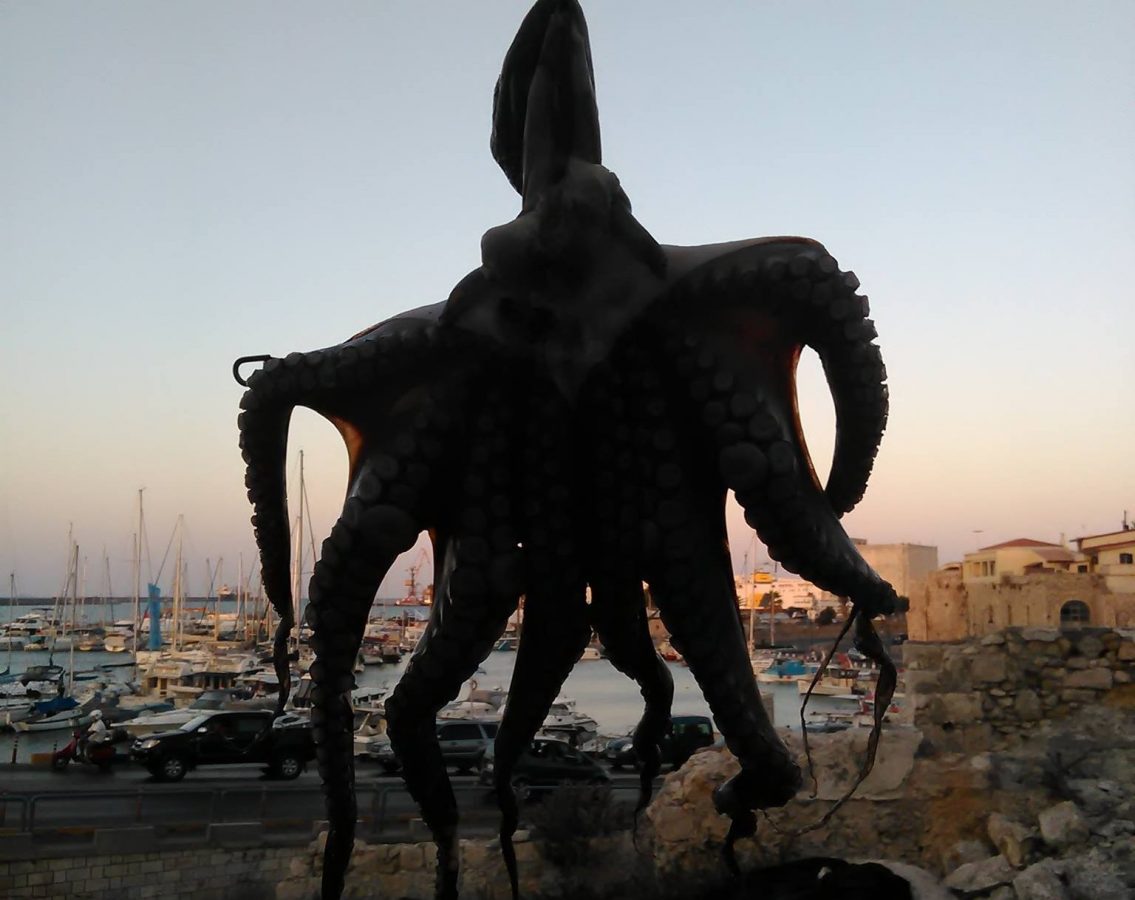When you order your grilled octopus in a tavern by the Cretan sea, the tentacles curl up, the lemon squeezes, the salt dusts. It tastes of sun, surf, and tradition. But beneath the plate lies a question many don’t ask: should it be on your plate at all?
In this article, we’ll look at octopuses through the lens of science, ethics, and the environment. They are not mere seafood. They are remarkable creatures—intelligent, sensitive, ecologically important. We’ll ask: Is eating them still justifiable?
1. Brains, arms, and intelligence
Modern science no longer treats the octopus as a mindless snack. The genus Octopus belongs to cephalopods, a group increasingly recognized as among the most cognitively advanced invertebrates. MDPI Blog+3PubMed+3Queensland Brain Institute+3
- A common octopus (Octopus vulgaris) boasts around 500 million neurons, about as many as a dog. Natural History Museum
- Two-thirds of those neurons aren’t in the “brain” but are distributed in the arms—meaning the arms think, sense, and act somewhat independently. Wikipedia
- Particular experiments show octopuses solving puzzles, unscrewing screw caps, escaping aquariums, and navigating mazes. Natural History Museum
- Research suggests they may have consciousness or at least sentience: they can plan, remember, and adapt across time. PMC
- Given this, consuming them raises unique ethical questions: not just “is this seafood sustainable?” but “is this being a creature we understand, respect, and owe some duty to?”
2. Feeling pain—and more
Beyond intelligence, octopuses appear capable of suffering:
- In one study, injured octopuses avoided places where they’d been harmed and preferred places where pain relief was applied. Wikipedia
- Engaging with their nervous system and behavior suggests they have a rich internal life: preferences, aversions, perhaps feelings. LSE
- As one commentator put it: “If you care about the inner lives of animals … you really shouldn’t eat cephalopods.” The Guardian
- So ethically, when you eat octopus, you are (increasingly likely) participating in the taking of a sentient being—one whose mental life is far more complex than we once believed.

3. Environment and sustainability
It’s not only about intelligence and ethics. The production side stacks up problems:
- Wild-caught octopuses are being over-exploited. Demand grows; some species’ populations decline. World Economic Forum
- Farming octopuses is an emerging phenomenon—and ethically fraught. They require large amounts of feed (often wild fish) and complex environments; confinement can cause stress, and escapes can damage ecosystems. Animal Law Conference
- Ecologically, feeding farmed octopuses often uses large volumes of forage fish, thus disrupting entire marine food webs. Food Empowerment Project
- In short, eating octopus isn’t the low-impact seafood option many assume it is. It often carries the same or greater burden than some terrestrial meats.
4. Tradition, taste—and rethinking culture
Yes—here in Crete, as in much of the Mediterranean, octopus is a culinary tradition. It’s grilled, braised, included in meze, and part of seaside dining. But tradition isn’t an automatic shield from ethical reflection.
Tradition evolves. And today, more diners are asking: “Is this dish compatible with what I value?”
If an animal is highly intelligent, sentient, and ecologically demanding, maybe our menu should shift. Maybe “delicacy” doesn’t justify “demand.”
5. What you can do instead
Here are practical steps:
- Choose alternative seafood: smaller fish, local species with sustainable quotas.
- Ask restaurants: how local is the catch? Was it wild-caught or farmed? Under what conditions?
- Reduce frequency: treat the octopus as exceptional, not every day.
- Support research & policy: push for stronger welfare legislation for cephalopods—and for transparency in supply chains.
- Some countries already include octopuses under welfare protections. LSE
Next time you sit by a Cretan shore, watching the waves, think of the creature behind that dish—the eight-armed, curious, and complex octopus who floated in the dusk. It looked at its world; it learned; one day it ended on your plate.
We can keep our traditions. We can keep our plates full. But we can also ask: “Does this dish align with what I now know?”
If the answer is no, then maybe it’s time to eat less octopus—and eat more conscience.